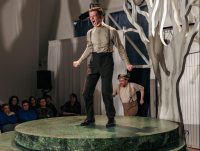Search the website
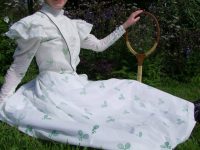
Isabel Cope
BA (Hons) Costume for Theatre, Film and Television
During her time at BOVTS she has grown passionate about historical costume which led her to focus on Women’s Sportswear in the 1890s. Isabel implemented her skills used in the FdA course to complete three costumes displayed here, these included millinery, corsetry, pattern drafting, basic tailoring, historical costume, dye and breakdown. Isabel would like to further her knowledge in making in a workroom environment.
BOVTS Credits:
Costume Supervision: The Laramie Project (BOV, Weston Studio), Otis and Eunice (BOVTS), Poison (The Wardrobe Theatre), “Tomorrow” (BOVTS short film) including standby.
Costume Maker: Troilus and Cressida, Snow Queen (The Redgrave Theatre), The Life and Adventures of Nicholas Nickleby (BOV).
Costume Assistant/Dresser: Earthquakes in London, Clybourne Park (BOV, Weston Studio), Mrs Beeton Says, The Railway Children (Redgrave Theatre).
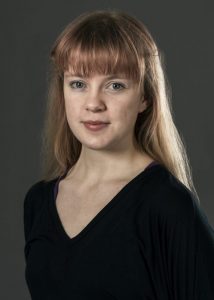
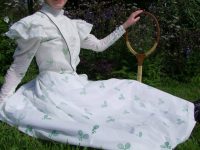
3rd year project – Women’s Sportswear in the 1890’s – Tennis Dress
This is my Tennis dress, I blocked and trimmed the hat, I hand printed to tennis rackets on cotton lawn and hand embroidered the collar, yoke and sleeve frills. I wanted to show the little ways they made a seemingly impractical dress practical. Like how the hem is at least four inches off the ground. This dress was also made to show how women were ornaments in sport and never really taken seriously.)
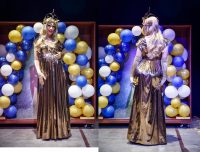
Helen from Troilus and Cressida
A showmake for Troilus and Cressida. performed at The Redgrave Theatre, Directed by Gemma Fairlie and Designed by Trish Mantripp. Photographed by Craig Fuller.
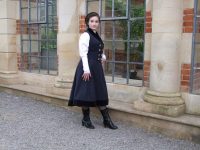
3rd year project – Women’s Sportswear in the 1890’s – Golf Suit
This Golf suit was to show the middle ground of practical and impractical garments that were around at the time, also how men’s tailoring was being integrated into women’s costumes at the time. I took heavy inspiration from hunting and hiking suits from the time. Many would go to Scotland for these activities, so I wanted to create a spring and winter set. That is why I chose the classic shirtwaist which was very popular at the time and skirt with inbuilt petticoat.
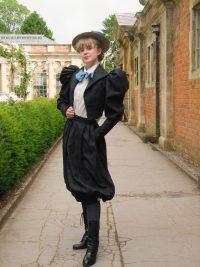
3rd year project – Women’s Sportswear in the 1890’s – Cycling Suit
This is the cycling suit I created based off the rational dress of the time. The rational dress was considered “extreme” and very political at the time. I wanted to show the most practical clothing women could wear, even though they would have been ridiculed at the time because of it. Many women went on cycling tours of Europe and would wear garments like this and blend in but when they got back to Britain, they would get verbal and physical abuse for it.
